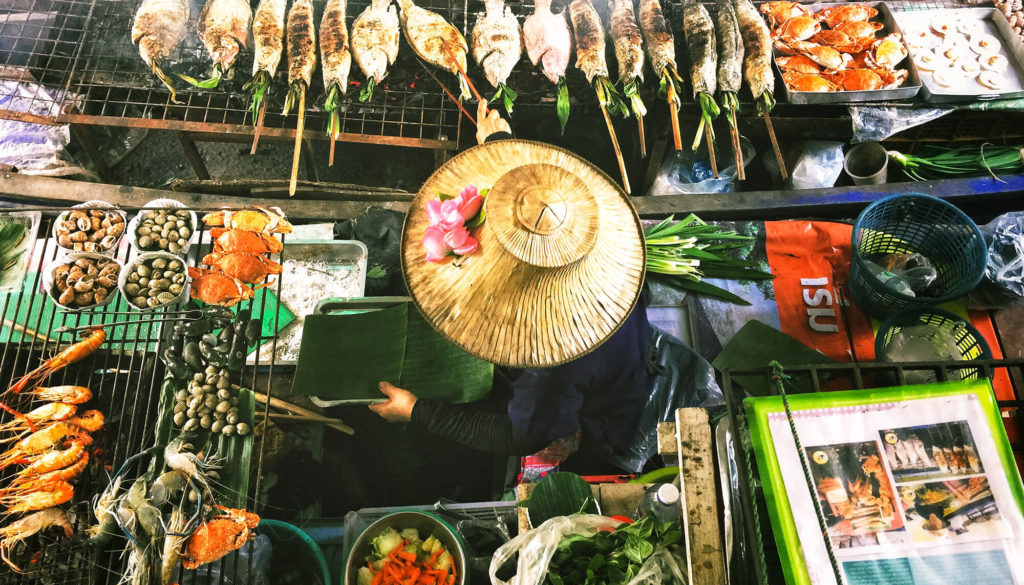Travelling with Food Allergies
If you live with food allergies then you are likely well aware of how to prevent an allergic reaction. You may be used to not having that food in the house, carefully reading labels, letting restaurant staff know of your allergies when eating out, and carrying an epi-pen with you if your allergies are severe.
So you might think travelling is no different. Or do you perhaps feel a little apprehensive about travelling with food allergies? Travelling with food allergies could mean new potential risks, but by planning ahead you can still enjoy experiencing new countries and cultures. Below we’ll outline some factors about travelling with food allergies you may or may not have considered and provide some tips for a safe and reaction free trip!
Before your trip
- Plan as far in advance as possible
- Research restaurants in the area you are travelling to. Call them ahead of time to learn about allergy policies.
- Purchase travel health insurance. For more information about travel health insurance visit our blog
- Find out where the nearest hospitals are in the area you are travelling to, and find out if 911 services are offered
What to pack
- Travel plan of the International Food Allergy & Anaphylaxis Alliance: https://www.foodallergy.org/sites/default/files/migrated-files/file/IFAAA-Travel-Plan.pdf
- Food allergy and anaphylaxis emergency care plan: https://www.foodallergy.org/life-with-food-allergies/food-allergy-anaphylaxis-emergency-care-plan
- Snacks and meals in case you are in a situation where there are no safe restaurants to eat at
- Epinephrine auto-injectors (epi-pen). Ensure you bring extra and they are not expired.
- An allergy card with details of your allergy that you can provide to those preparing your food. If travelling to a country that does not speak English, have your allergy card translated to the local language before travelling.
- Professionally translated allergy cards can be ordered here: https://allergytranslation.com/.
- The Food Allergy Research & Education website provides interactive PDF allergy card templates in English and several other languages: https://www.foodallergy.org/life-with-food-allergies/managing-lifes-milestones/dining-out/food-allergy-chef-cards
Booking Accommodation
- Consider booking accommodation that has a kitchen or fridge/microwave so you can prepare your own meals. Consider bringing non-perishable food items from home (don’t assume the same products in other countries will have the same ingredients).
- Call hotels to find out about their food allergy policies
Travelling by air
- Contact the airline ahead of time to find out about their allergy policies. Most airlines can make accommodations with advanced notice.
- Bring your epi-pens in your carry-on bag (bring at least 1 extra). Do not pack epinephrine in your checked luggage as the temperature can become too cold.
- Bring food and snacks to eat on the plane and in the airport. Bring extra in case of delays.
- Bring cleaning wipes to wipe down seats, table trays, walls and windows to avoid a contact reaction.
- Tell the flight attendant about your allergies before boarding the plane. The flight attendant may be able to make an announcement before takeoff asking passengers not to open any snacks containing your allergen (especially for a severe peanut allergy). If you are travelling alone let the flight attendant know where to find your epi-pens in case you experience an anaphylactic reaction.
Visiting another country
- Research local labelling laws and read labels carefully
- Have details of your allergy translated to the local language of your destination country. You can give this information to those who prepare your food.
- The Food Allergy Research & Education website provides food allergy travel tips for select destination countries. See if your destination country is included in the list to find out about available medications, emergency services, and food labelling laws: https://www.foodallergy.org/life-with-food-allergies/managing-lifes-milestones/traveling/travel-tips-for-the-us-and-other
You don’t have to miss out on travelling the world, even with food allergies. With careful planning and taking precautions you can be allergy aware and travel the world safely! Preparation is key!
TravelSafe Clinical Educator – Kristin Cain, RN, BSc, MSc(A)



